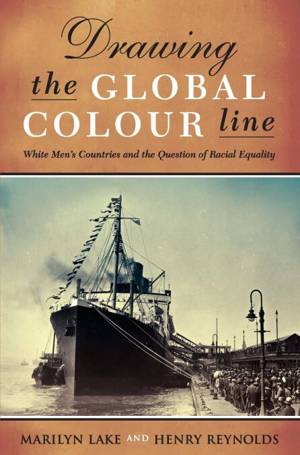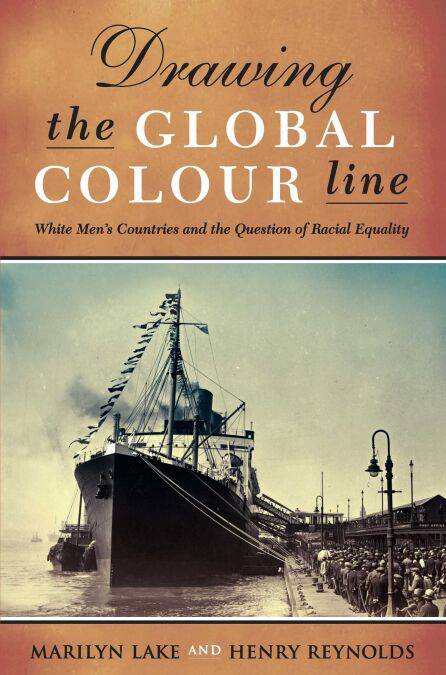
- Afhalen na 1 uur in een winkel met voorraad
- Gratis thuislevering in België vanaf € 30
- Ruim aanbod met 7 miljoen producten
- Afhalen na 1 uur in een winkel met voorraad
- Gratis thuislevering in België vanaf € 30
- Ruim aanbod met 7 miljoen producten
Zoeken
Drawing The Global Colour Line E-BOOK
White Men's Countries and the Question of Racial Equality
Henry Reynolds, Marilyn Lake
E-book | Engels
€ 16,15
+ 16 punten
Uitvoering
Omschrijving
At last a history of Australia in its dynamic global context. In the late nineteenth and early twentieth centuries, in response to the mobilisation and mobility of colonial and coloured peoples around the world, self-styled 'white men's countries' in South Africa, North America and Australasia worked in solidarity to exclude those peoples they defined as not-white--including Africans, Chinese, Indians, Japanese and Pacific Islanders. Their policies provoked in turn a long international struggle for racial equality.
Through a rich cast of characters that includes Alfred Deakin, WEB Du Bois, Mahatma Gandhi, Lowe Kong Meng, Tokutomi Soho, Jan Smuts and Theodore Roosevelt, leading Australian historians Marilyn Lake and Henry Reynolds tell a gripping story about the circulation of emotions and ideas, books and people in which Australia emerged as a pace-setter in the modern global politics of whiteness. The legacy of the White Australia policy still cases a shadow over relations with the peoples of Africa and Asia, but campaigns for racial equality have created new possibilities for a more just future.
Remarkable for the breadth of its research and its engaging narrative, Drawing the Global Colour Line offers a new perspective on the history of human rights and provides compelling and original insight into the international political movements that shaped the twentieth century.
Winner of the Ernest Scott Prize 2009
Winner of the Queensland Premier's Prize for History 2009
Winner of the Prime Minister's Prize for Non-Fiction 2009
Through a rich cast of characters that includes Alfred Deakin, WEB Du Bois, Mahatma Gandhi, Lowe Kong Meng, Tokutomi Soho, Jan Smuts and Theodore Roosevelt, leading Australian historians Marilyn Lake and Henry Reynolds tell a gripping story about the circulation of emotions and ideas, books and people in which Australia emerged as a pace-setter in the modern global politics of whiteness. The legacy of the White Australia policy still cases a shadow over relations with the peoples of Africa and Asia, but campaigns for racial equality have created new possibilities for a more just future.
Remarkable for the breadth of its research and its engaging narrative, Drawing the Global Colour Line offers a new perspective on the history of human rights and provides compelling and original insight into the international political movements that shaped the twentieth century.
Winner of the Ernest Scott Prize 2009
Winner of the Queensland Premier's Prize for History 2009
Winner of the Prime Minister's Prize for Non-Fiction 2009
Specificaties
Betrokkenen
- Auteur(s):
- Uitgeverij:
Inhoud
- Aantal bladzijden:
- 384
- Taal:
- Engels
Eigenschappen
- Productcode (EAN):
- 9780522874372
- Verschijningsdatum:
- 3/07/2018
- Uitvoering:
- E-book
- Beveiligd met:
- Adobe DRM
- Formaat:
- ePub

Alleen bij Standaard Boekhandel
+ 16 punten op je klantenkaart van Standaard Boekhandel
Beoordelingen
We publiceren alleen reviews die voldoen aan de voorwaarden voor reviews. Bekijk onze voorwaarden voor reviews.











